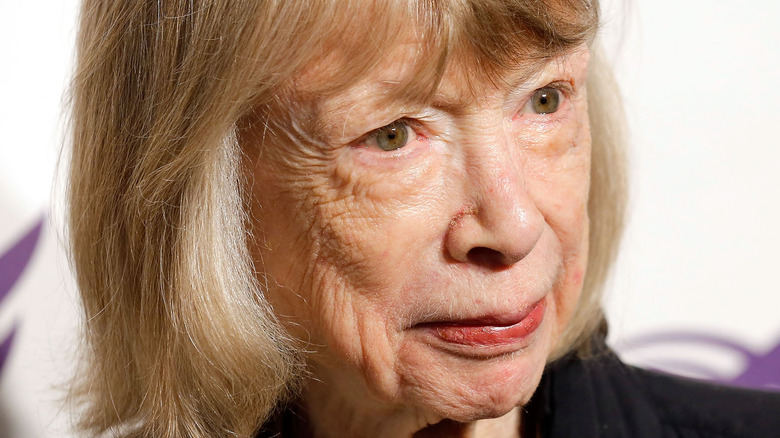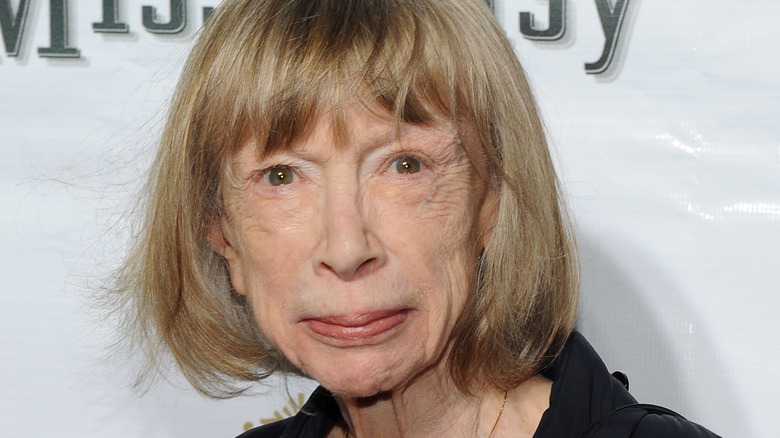The Tragic Death Of Author Joan Didion
American journalist and essayist Joan Didion, best known for her political writing and screenplays, has tragically died at her home in Manhattan, New York on December 23, reports The New York Times. The news was confirmed to the outlet by Didion's publisher, who cited the cause of death as Parkinson's disease. Didion was 87 years old.
"We are deeply saddened to report that Joan Didion died earlier this morning at her home in New York due to complications from Parkinson's disease," Penguin Random House/Knopf said in a statement (via New York Post). Didion's death is preceded by her husband, John Gregory Dunne — who died in 2003 from a heart attack — and daughter Quintana Roo Dunne, who died from pancreatitis in 2005.
In the light of her death, fans are revisiting her impact on the literary and political world. Join us as we take a look at her storied accomplishments and influence on culture as a whole.
Joan Didion was hailed as a literary great
Born in Sacramento, California in 1934, Joan Didion was the daughter of an Army Air Corps member and frequently moved from state to state, according to The Guardian. She became interested in writing as a child, receiving her first notebook at the age of 5. Didion attended University of California, Berkeley, where she majored in English literature and embarked on her professional writing career after winning a Vogue essay contest in her senior year. Didion spent several years working for the famed fashion magazine, before striking out on her own as a writer.
Per the New York Post, Didion made a name for herself in the literary world after releasing "Slouching Towards Bethlehem" — a collection of essays, in which she detailed the hippie movement in San Francisco and the upheavals of Americans in the 1960s. She spoke out against oppression and capitalism in her essays, and gained a loyal following of fans while winning critics over with her voice.
Shortly after publishing her collection of essays, Didion teamed up with her husband, John Gregory Dunne, to write screenplays, including the 1976 film "A Star Is Born." Didion continued to release books throughout the '70s and into the 2000s, while contributing her voice to political commentary. In 2012, President Barack Obama presented Didion with the National Medal of Arts and the National Humanities, marking one of the last times she was seen at a public event. She last appeared in a 2017 Netflix documentary, "Joan Didion: The Center Will Not Hold," directed by her nephew, Griffin Dunne.


